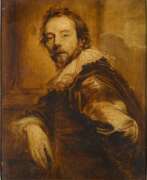Tenebrism Flemish School


Adam de Coster, born around 1586 in Mechelen and passing away in 1643 in Antwerp, was a renowned Flemish painter and a key figure among the Antwerp Caravaggisti. This group of artists was part of an international movement that interpreted Caravaggio's work in a personal manner, known for their genre scenes with strong chiaroscuro effects. De Coster was particularly celebrated for his nocturnal scenes, earning him the nickname "Pictor Noctium" (literal translation „Painter of Nights“) due to his preference for tenebrist scenes.
His works often depicted subjects similar to those found in Caravaggio's paintings, such as card sharps, fortune tellers, and musical performances, showcasing de Coster's fascination with the play of light and shadow. Notable pieces by de Coster include "Three Singers," which demonstrates his skill in rendering the texture of fabrics and the dramatic effects of light on his subjects, and "A Man Singing by Candlelight," capturing a moment's drama through meticulous lighting.
Adam de Coster's art continues to captivate audiences with its atmospheric intensity and meticulous attention to detail. His contributions have solidified his place in the history of Flemish painting, with works featured in prestigious collections, including the Liechtenstein Museum in Vienna and the National Gallery of Ireland.
For collectors and experts in art and antiques, Adam de Coster's masterpieces represent a fascinating intersection of Flemish tradition and Caravaggesque innovation. To stay informed about new discoveries, sales, and auction events related to Adam de Coster, consider signing up for updates from art galleries and auction houses. This will ensure you have access to the latest information and opportunities to appreciate the legacy of this luminous master of painting.